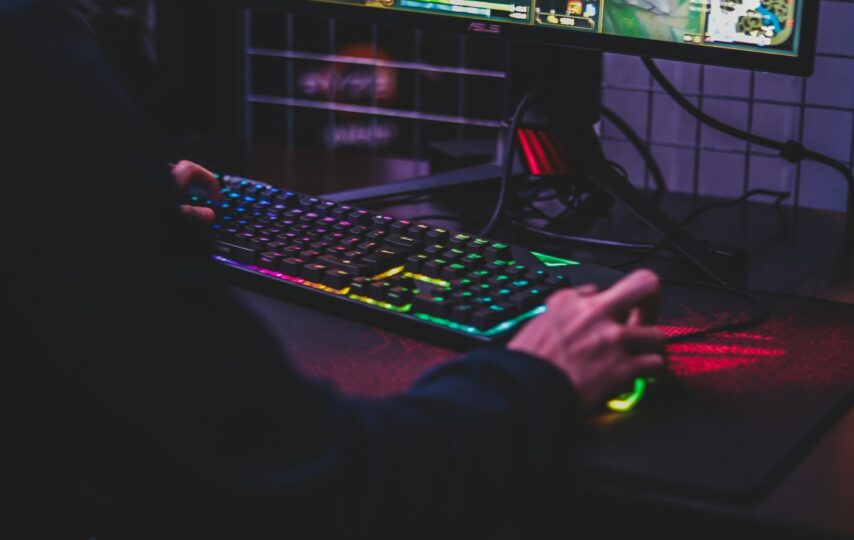Online gaming is fast becoming a popular pastime for most people. Super handy after a hard day’s work, a couple of hours kicking back to relax with friends online, and enjoying any of your favorite gaming titles hardly seems like a risky idea. Only that it very quickly can open you up to a myriad of risky positions if not properly plugged. How? Here’s how:
1. Choose the right platform
You might think this is a no-brainer, but many people fail to take this very simple step. Your choice of platform ultimately decides how much safety you will be afforded. If you game on unregulated platforms, the chances that your identity and financial information are mishandled and fall into the wrong hands are through the roof.
People often take this risk because they believe the “government” is watching or some unseen eye is tracking their every keystroke. So they opt for backdoor, shady outfits to avoid sharing their personal information. But it no longer needs to be the devil or the deep blue sea, with gaming companies allowing players to access their facility without providing KYC information — most notably the growing number of no KYC casino sites. Unlike traditional online casinos, these sites don’t require users to upload copies of their ID or credit card to start playing.
Choosing the right platform should not just be about its gaming offerings but also about how well it can protect your interests, so you must take your time with the search.
2. Update your devices
The race to stay hack-proof is only won when you always stay one step ahead. One way to do that is always to update the operating system of your devices. This is because the latest firmware would come with updates that offer better protection and usually dispose of vulnerabilities that would have plagued the former. Devices operating on older firmware are low-hanging fruits that can easily be targeted by hackers looking to steal information.
3. The right password practices
Most people are very particular about choosing passwords when creating social media accounts or opening new emails because they can not afford these accounts being accessed without the right authorization. What they don’t understand is that their gaming accounts can very easily be described as another social media account or mailing account because they are used to correspond with other players on the platform. As a result, it is just as easy to have data siphoned if not well protected.
The first step is to skip that easy password you had in mind because you thought gaming accounts didn’t matter. Repeating the same password for multiple gaming accounts is just as bad as one hack, which gives the hacker access to all the accounts with the same password.
Good password practices include creating strong passwords that are at least eight characters long with different character types. These passwords mustn’t be derived from easily guessable personal information like your name, your pet’s name, or your birthday.
Another rookie mistake with handling passwords is keeping a note beside your computer or on your device that holds these passwords. Once compromised, all your data is left for taking, and you’re better off using a password manager to manage your passwords. These apps are designed to keep your passwords safe even if your device is compromised.
4. Have you tried crypto?
If you don’t want to do any heavy lifting securing your data online, then try crypto. Platforms that use crypto do not require you to provide too much information, as most of the security is ingrained in the use of cryptocurrency and the blockchain technology that underpins it.
Using cryptocurrency to facilitate withdrawals and deposits affords as much anonymity as you can get with any system due to its pseudonymous nature. Transactions are tracked with wallet addresses and transaction hash IDs instead of your name and other identifying features. Adopting this system makes it challenging (not impossible) to track individuals or steal personal information.
Also, blockchain technology itself is basically an unalterable digital ledger that keeps all records and can not be falsified by any authority. This ensures you are protected from other players and the platform you patronize.
5. Use MFA
Passwords are good, but they are not great alone. Employing multi-factor authentication (MFA) can add an extra layer of security. MFA only allows access to your account when you can provide at least two of the following types of information:
- Something you have, i.e., a code from an authenticator app registered on the device.
- Something you are, i.e., biometric information, could be your fingerprint or face ID.
- Something you know, usually pin, password, or keyphrase
Having to provide multiple access information makes it that much more challenging to access your account illegally.
Conclusion
People find their way to different gaming platforms for different reasons. Some are there to play games and have fun—i.e., you—while others are there to scout unsuspecting gamers and cart away their valuables. There’s no surefire way to keep these people at bay, but these tips will certainly set you off on the right foot. Good luck!








